China and Covid19
Social Media Discussions Surrounding China’s Major Policy Shift and National Covid Wave
Five major views and discussions on Chinese social media in light of the country’s sudden opening up and Covid wave.
Published
2 years agoon

PREMIUM CONTENT ARTICLE
On December 7th of this year, Chinese authorities announced the ten new rules that eased the country’s stringent Covid measures. Within days, the Health Code system was abolished in most places, quarantine locations were changed into sub-designated hospitals, and by December 12th, the country’s zero-Covid had effectively ended.
Although people were happy to bid farewell to China’s fangcang, lockdowns, mass testing, and Covid QR systems, the extreme speed at which the changes took place caused other problems as the number of Covid-infected rose all over China and difficulties in purchasing medicine became a reality. Many were unprepared, in various ways, for the huge shift in policy.
As countless Weibo bloggers post about their Covid symptoms, exchange tips and give updates, there are also other wider social media discussions surrounding the current Covid outbreak. These are the main gists of the online discussions taking place on Weibo this week.
1. SHIFT TOO SUDDEN
“I am still unable to understand why the policy took such a sharp turn, we did not even have the time to adjust”
One recurring sentiment on Chinese social media in the midst of this current outbreak is that the changes are too abrupt and that people barely had time to prepare themselves for the end of ‘Zero Covid.’
On December 5th, just days before the major easing of restrictions, one blogger from Beijing (@ETF拯救世界) posted:
“What I find a bit strange is that we’re seeing several places opening up now, but why haven’t we seen something like a national-level manual regarding medical treatment? How to handle getting infected, what kind of medicine we can take, how to rest, how to use antigen tests, under which circumstances should we stay home and when to go to hospital, when we can start exercise and undertake activities again, what about nutrition, the issue of mental stress, and when can we return to work again? There is nothing there. If there’s something, I haven’t seen it.”
Although state media outlet People’s Daily later did issue such a ‘manual’ via social media (#阳性感染者居家康复实用手册#), it came at a time when the major Covid wave was already in full swing.
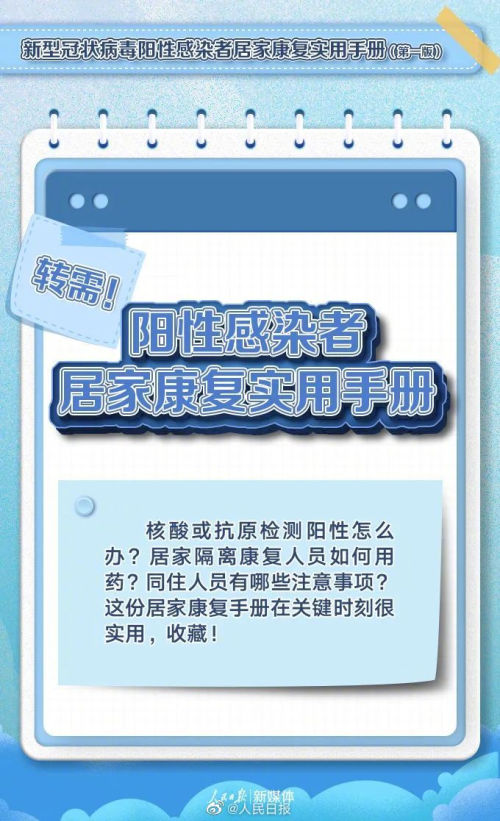
“Lockdowns are lifted, but now I no longer dare to go out at all,” one popular comment said.
“Such a sudden shift, if we would have a road of easing [measures] first, we could have had some options. Now we have no choice,” one Weibo user from Guangdong wrote.
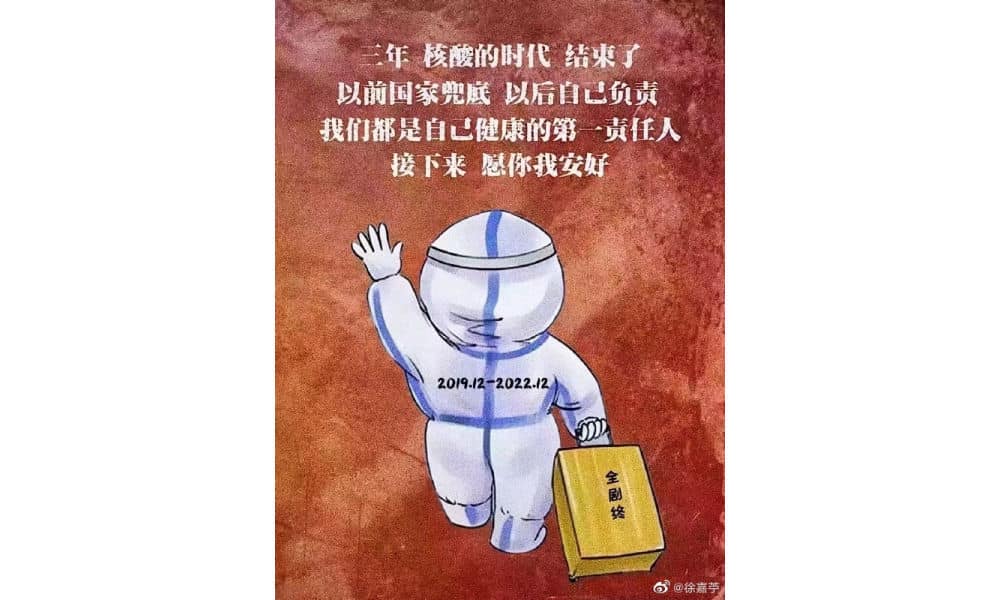
“Why did we open up in winter, why didn’t they restore the purchasing of antipyretic medicine before opening up, why did they insist on notifying us so last minute?”
Some people share how they feel the shifts of 2022 when it comes to Covid made them feel like they had no control of the situation at all: “I am still unable to understand why the policy took such a sharp turn, we did not even have the time to adjust.”
At the same time, there are also commenters who still say they feel happy about the end of Covid measures: “I am not happy about the sudden turn of events, but I’m glad that we’re opening up,” one person wrote.
2. INCONSIDERATE FELLOWMEN
“Covid-19 is a ‘monster-revealing mirror’ when it comes to human nature”
Apart from the sudden policy shift itself, people also complain about a shift in people’s attitudes regarding the virus and the sense of selfishness that has come with it.
Xie Dai (@榭黛), a Fujian-based Weibo astrology blogger with over 800k followers, addressed the polarization that the recent opening up of China has brought between people in a recent post.
“Today is December 22nd, the tenth day since the complete liberalization (全面放开) of the epidemic. I won’t go into details about the other [problems] Covid has brought, but I want to plainly talk about the problem related to human nature reflected in the epidemic. Some people have become closer thanks to the epidemic, others have started to plant seeds of hatred inside their hearts because of the epidemic, and then there are those who parted ways due to the epidemic. Covid-19 has become a “monster-revealing mirror” when it comes to human nature.”
Xie Dai writes about an incident recently with a customer from Hubei who told her that they wished she would “test positive for Covid very soon” – a comment that left Xie Dai baffled. She also recounts the personal stories of some of her contacts, including one in which a bride-to-be called off the wedding because her fiancee offered her zero sympathies while lying in bed with Covid and a 104°F (40°C) fever – until he tested positive himself and started to understand how bad she must have felt.
One of her clients from Jiangsu let her cousin (her aunt’s daughter) stay with her for the past 2.5 years without asking for any money in return. When Xie Dai’s client fell ill with Covid, the cousin did not ask her how she was doing, nor brought her any medicine or fruit. While lying in bed, she had plenty of time to think and decided to kick her cousin out of the house once she recovered.
Other trending stories show that partners are not always supportive in times of sickness. One video captured by home security cameras showed a husband carelessly leaving his crying child with his wife, even though the mother was visibly ill and had no energy to take care of their baby (#丈夫故意把孩子弄哭丢给发烧妻子#). “Once you test positive, their humanity is put to the test,” one popular comment said.
Besides the complaints about the inconsiderate behavior of people from within one’s own social circles, there are also those who think (local) authorities have been selfish in their hasty decision-making: “When Shanghai saw an epidemic outbreak, they did lockdown lockdown lockdown, because the ones going into lockdown wasn’t them; during this outbreak, they’re opening opening opening, because they can lock themselves out.”
3. SOCIAL CLASHES
“Pinning the suffering on others becomes more important than the suffering itself”
Covid is causing clashes between friends and families, but there is also a broader trend of people condemning those who previously spoke out in support of China opening up, and those who protested against China’s stringent Covid measures in late November (read more here).
“Since so many people were dissatisfied with the lockdown controls, they should be open to accept the consequences they face today,” one blogger based in Xinjiang wrote.
Another Weibo user suggested that the protesters carrying A4 papers, protesting to ease measures, did not take into account the status quo of China’s medical situation and the size of the population, saying: “You now turn a blind eye to the human suffering we’re facing.”
One popular blogger from Shanghai wrote:
“Hatred. In the past few days, I noticed a wider trend of public opinion regarding the massive number of infections after opening up, with some having heavy symptoms – some elderly people simply can’t cope and pass away. All these sufferings are considered to be evil caused by those who demanded liberalization, and all those who advocated liberalization should now pay the price and apologize. If someone enthusiastically promoted opening up before and are now infected themselves, then they only have themselves to blame. In short, one group of people sees another group of people as enemies and hates them all for having their wishes fulfilled as if they really could decide anything. I said it before, but in public opinion, pinning the suffering on others becomes more important than suffering itself, and you could even say that exercising control over the blame of the suffering becomes like exercising control over the suffering itself.”
4. TIRED OF EXPERTS
“That Covid would be like a cold is the biggest lie of 2022”
Throughout China’s epidemic, many well-known experts have recurrently given advice and information regarding Covid-19. In this current outbreak, public anger is also directed at these experts, especially because their advise seems to change all the time and many people do not agree with what they are saying or doing, and people have lost trust in their words.
“Completely unprepared, they opened everything up in one night, and greatly misjudged the level of infections,” one Weibo user wrote.
“These bullsh*t experts said it was like a cold,” others said: “But I feel so unwell!”
“That Covid would be like a cold is the biggest lie of 2022.”

One of the experts who compared Covid-19 to a common cold is Zhong Nanshan (钟南山),who even proposed to call Covid-19 the Covid cold (新冠感冒) (#钟南山称当前新冠应该叫新冠感冒#).
Another reason why people are tired of reading about ‘expert advise’ in the media is that they contradict each other all the time.
For example, one hashtag said: “Experts Say that the Body Will Still Need 2-3 Weeks to Recover after Turning Negative” (#专家称转阴后身体约2到3周才能恢复#) while the other hashtag said “Zhong Nanshan Says 99% of Infected People Will Fully Recover within 7-10 Days” (#钟南山称99%感染者7至10天完全恢复#).
This trend of people turning against experts also came up earlier in 2022, when the topic of “experts are advised not to advise” (建议专家不要建议) was trending on Chinese social media.
5. WORRIES OVER HEALTHCARE AND MEDICAL RESOURCES
“I hope those who died can rest in peace, and that those who live will be strong”
Perhaps one of the most important topics that comes up in the context of online discussions about China’s current situation is healthcare and the availability of medicine and other medical resources.
“It’s the sixth day of Covid,” one Weibo user wrote: “I used to support opening up, until I got Covid. I suddenly realize that this virus is not so easy, I know of many elderly people who already passed away because of it and I feel really unwell, which is making me wonder in which way this ‘catastrophe’ will end.”
Other netizens also worry about the Covid symptoms they are experiencing or seeing all around them. “What I don’t understand is that before we opened up, the people inside the quarantine locations were asymptomatic, however after opening up so many who test positive are experiencing symptoms all over, and are running a fever.”
Many people complain about their symptoms being much worse than they expected. “Will I ever feel well again?” some wondered.
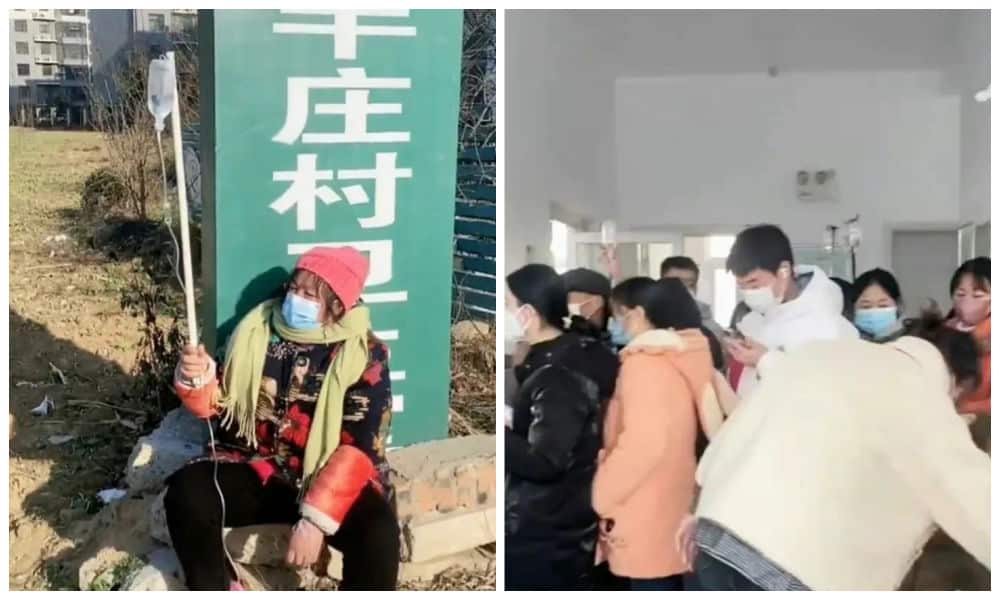
“I can’t get medicine, I can’t get a nucleic acid test here, they’re not doing it at the hospital either, and the antigen tests are sold out,” one Weibo commenter from Jiangsu said on 28 December.
Another Weibo user posted a video on 24 December showing crowded scenes at the emergency department of Beijing’s Chaoyang Hospital recorded on the 23rd. In the video, two hospital staff members pushed a trolley with a body bag on it through the crowds. Although the video was shared over 500 times and received more than 300 comments, none of the comments were available to see at time of writing.
Last week, people in various regions across China also posted videos and images of overcrowded fever clinics and local hospitals.
Healthcare workers also shared their challenges on social media, as the long working hours and major inflow of Covid-positive patients expose them to physical and mental exhaustion.
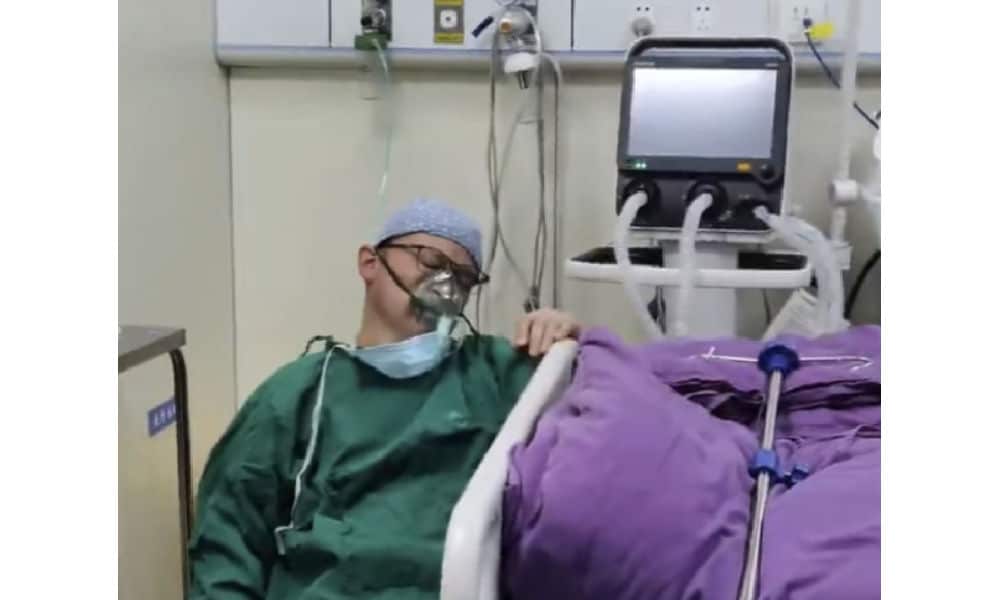
“We usually have thirty patients in our ward, now we have over seventy yet we have the same number of staff,” one healthcare worker from Zhejiang wrote.
“It’s been nineteen days since we opened up, and I never imagined this,” one Weibo user from Henan said: “In every county and municipality, funeral parlors are overflowing, the crematoriums are completely full.” After writing about seeing long lines of people in front of the funeral homes, they end their post: “I hope those who died can rest in peace, and that those who live will be strong. Tomorrow will be a better day.”
Read more about Zero Covid ending here.
By Manya Koetse
Get the story behind the hashtag. Subscribe to What’s on Weibo here to receive our newsletter and get access to our latest articles:
Spotted a mistake or want to add something? Please let us know in comments below or email us. First-time commenters, please be patient – we will have to manually approve your comment before it appears.
©2022 Whatsonweibo. All rights reserved. Do not reproduce our content without permission – you can contact us at info@whatsonweibo.com.
Manya Koetse is the founder and editor-in-chief of whatsonweibo.com. She is a writer, public speaker, and researcher (Sinologist, MPhil) on social trends, digital developments, and new media in an ever-changing China, with a focus on Chinese society, pop culture, and gender issues. She shares her love for hotpot on hotpotambassador.com. Contact at manya@whatsonweibo.com, or follow on Twitter.

Also Read
China and Covid19
Sick Kids, Worried Parents, Overcrowded Hospitals: China’s Peak Flu Season on the Way
“Besides Mycoplasma infections, cases include influenza, Covid-19, Norovirus, and Adenovirus. Heading straight to the hospital could mean entering a cesspool of viruses.”
Published
8 months agoon
November 22, 2023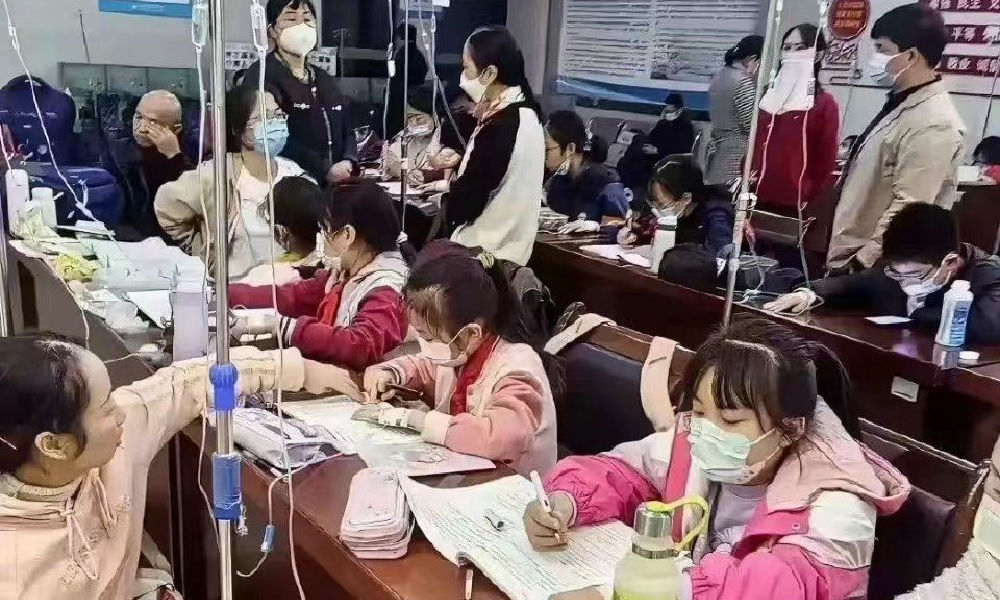
In the early morning of November 21, parents are already queuing up at Xi’an Children’s Hospital with their sons and daughters. It’s not even the line for a doctor’s appointment, but rather for the removal of IV needles.
The scene was captured in a recent video, only one among many videos and images that have been making their rounds on Chinese social media these days (#凌晨的儿童医院拔针也要排队#).
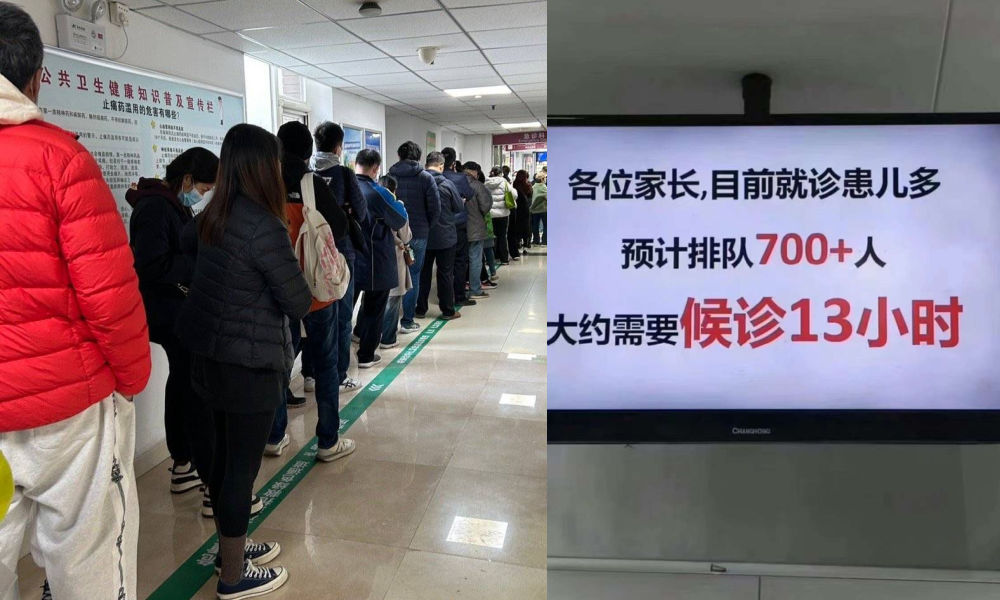
One photo shows a bulletin board at a local hospital warning parents that over 700 patients are waiting in line, estimating a waiting time of more than 13 hours to see a doctor.
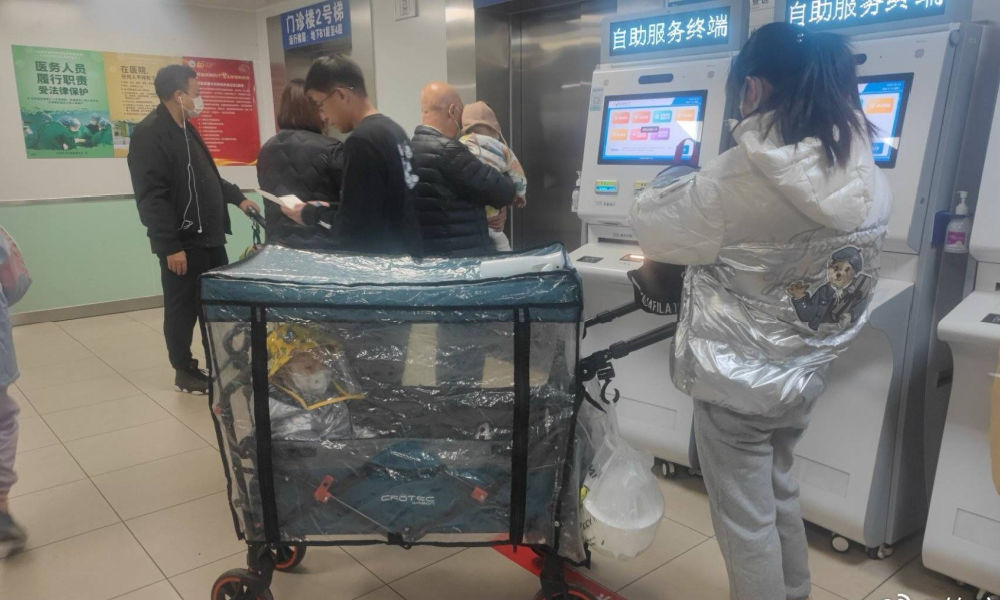
Another image shows children doing their homework while hooked up on an IV.

Recent discussions on Chinese social media platforms have highlighted a notable surge in flu cases. The ongoing flu season is particularly impacting children, with multiple viruses concurrently circulating and contributing to a high incidence of respiratory infections.
Among the prevalent respiratory infections affecting children are Mycoplasma pneumoniae infections, influenza, and Adenovirus infection.
The spike in flu cases has resulted in overcrowded children’s hospitals in Beijing and other Chinese cities. Parents sometimes have to wait in line for hours to get an appointment or pick up medication.
According to one reporter at Haibao News (海报新闻), there were so many patients at the Children’s Hospital of Capital Institute of Pediatrics (首都儿科研究所) on November 21st that the outpatient desk stopped accepting new patients by the afternoon. Meanwhile, 628 people were waiting in line to see a doctor at the emergency department.
Reflecting on the past few years, the current flu season marks China’s first ‘normal’ flu peak season since the outbreak of Covid-19 in late 2019 / early 2020 and the end of its stringent zero-Covid policies in December 2022. Compared to many other countries, wearing masks was also commonplace for much longer following the relaxation of Covid policies.
Hu Xijin, the well-known political commentator, noted on Weibo that this year’s flu season seems to be far worse than that of the years before. He also shared that his own granddaughter was suffering from a 40 degrees fever.
“We’re all running a fever in our home. But I didn’t dare to go to the hospital today, although I want my child to go to the hospital tomorrow. I heard waiting times are up to five hours now,” one Weibo user wrote.
“Half of the kids in my child’s class are sick now. The hospital is overflowing with people,” another person commented.
One mother described how her 7-year-old child had been running a fever for eight days already. Seeking medical attention on the first day, the initial diagnosis was a cold. As the fever persisted, daily visits to the hospital ensued, involving multiple hours for IV fluid administration.
While this account stems from a single Weibo post within a fever-advice community, it highlights a broader trend: many parents swiftly resort to hospital visits at the first signs of flu or fever. Several factors contribute to this, including a lack of General Practitioners in China, making hospitals the primary choice for medical consultations also in non-urgent cases.
There is also a strong belief in the efficacy of IV infusion therapy, whether fluid-based or containing medication, as the quickest path to recovery. Multiple factors contribute to the widespread and sometimes irrational use of IV infusions in China. Some clinics are profit-driven and see IV infusions as a way to make more money. Widespread expectations among Chinese patients that IV infusions will make them feel better also play a role, along with some physicians’ lacking knowledge of IV therapy or their uncertainty to distinguish bacterial from viral infections (read more here)
To prevent an overwhelming influx of patients to hospitals, Chinese state media, citing specialists, advise parents to seek medical attention at the hospital only for sick infants under three months old displaying clear signs of fever (with or without cough). For older children, it is recommended to consult a doctor if a high fever persists for 3 to 5 days or if there is a deterioration in respiratory symptoms. Children dealing with fever and (mild) respiratory symptoms can otherwise recover at home.
One Weibo blogger (@奶霸知道) warned parents that taking their child straight to the hospital on the first day of them getting sick could actually be a bad idea. They write:
“(..) pediatric departments are already packed with patients, and it’s not just Mycoplasma infections anymore. Cases include influenza, Covid-19, Norovirus, and Adenovirus. And then, of course, those with bad luck are cross-infected with multiple viruses at the same time, leading to endless cycles. Therefore, if your child experiences mild coughing or a slight fever, consider observing at home first. Heading straight to the hospital could mean entering a cesspool of viruses.”
The hashtag for “fever” saw over 350 million clicks on Weibo within one day on November 22.
Meanwhile, there are also other ongoing discussions on Weibo surrounding the current flu season. One topic revolves around whether children should continue doing their homework while receiving IV fluids in the hospital. Some hospitals have designated special desks and study areas for children.
Although some commenters commend the hospitals for being so considerate, others also remind the parents not to pressure their kids too much and to let them rest when they are not feeling well.
Opinions vary: although some on Chinese social media say it's very thoughtful for hospitals to set up areas where kids can study and read, others blame parents for pressuring their kids to do homework at the hospital instead of resting when not feeling well. pic.twitter.com/gnQD9tFW2c
— Manya Koetse (@manyapan) November 22, 2023
By Manya Koetse, with contributions from Miranda Barnes
Get the story behind the hashtag. Subscribe to What’s on Weibo here to receive our newsletter and get access to our latest articles:
Spotted a mistake or want to add something? Please let us know in comments below or email us. First-time commenters, please be patient – we will have to manually approve your comment before it appears.
©2023 Whatsonweibo. All rights reserved. Do not reproduce our content without permission – you can contact us at info@whatsonweibo.com.
China and Covid19
Repurposing China’s Abandoned Nucleic Acid Booths: 10 Innovative Transformations
Abandoned nucleic acid booths are getting a second life through these new initiatives.
Published
1 year agoon
May 19, 2023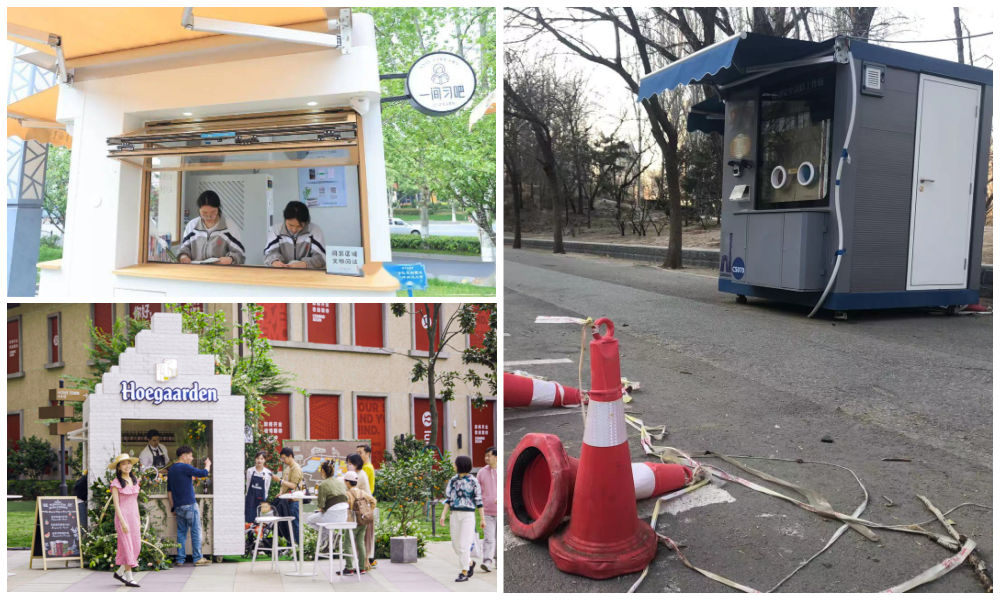
During the pandemic, nucleic acid testing booths in Chinese cities were primarily focused on maintaining physical distance. Now, empty booths are being repurposed to bring people together, serving as new spaces to serve the community and promote social engagement.
Just months ago, nucleic acid testing booths were the most lively spots of some Chinese cities. During the 2022 Shanghai summer, for example, there were massive queues in front of the city’s nucleic acid booths, as people needed a negative PCR test no older than 72 hours for accessing public transport, going to work, or visiting markets and malls.
The word ‘hésuān tíng‘ (核酸亭), nucleic acid booth (also:核酸采样小屋), became a part of China’s pandemic lexicon, just like hésuān dìtú (核酸地图), the nucleic acid test map lauched in May 2022 that would show where you can get a nucleic test.
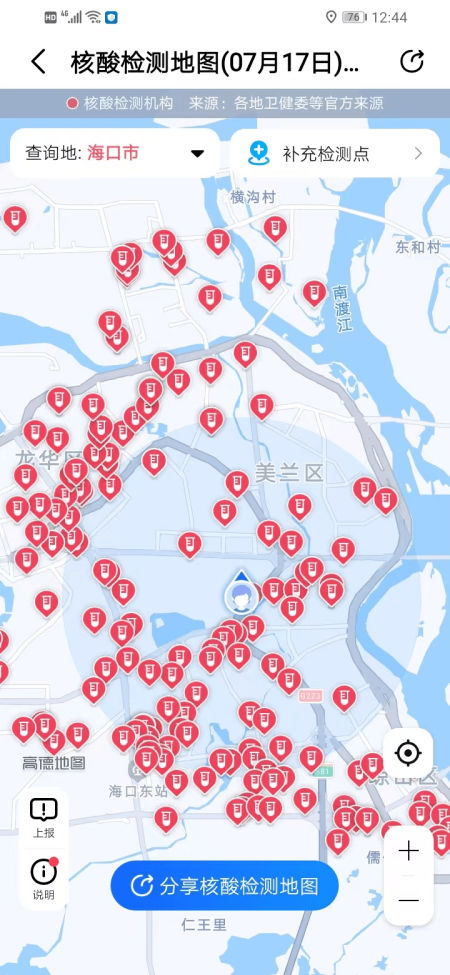
Example of nucleic acid test map.
During Halloween parties in Shanghai in 2022, some people even came dressed up as nucleic test booths – although local authorities could not appreciate the creative costume.
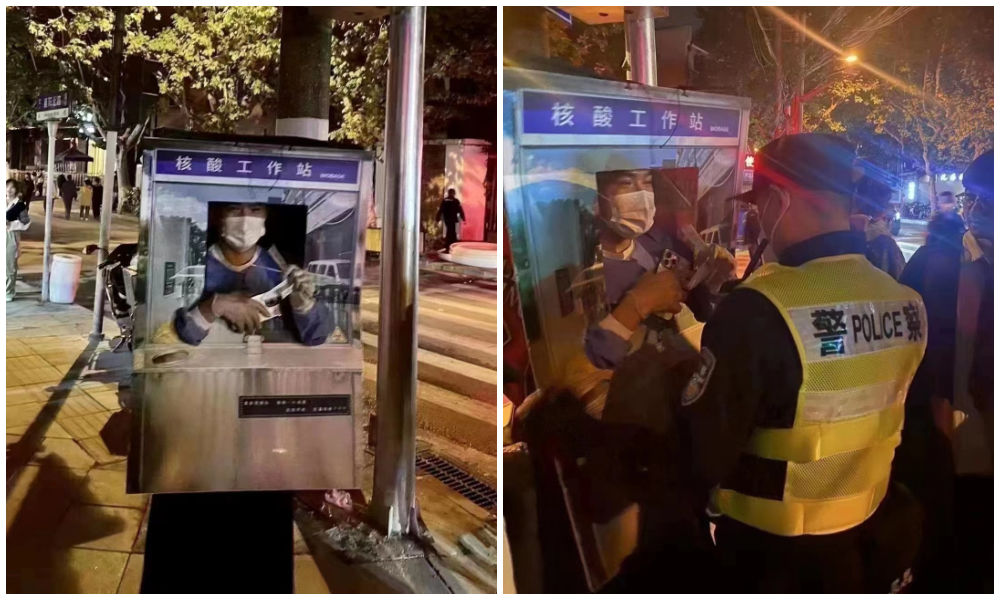
Halloween 2022: dressed up as nucliec acid booths. Via @manyapan twitter.
In December 2022, along with the announced changed rules in China’s ‘zero Covid’ approach, nucleic acid booths were suddenly left dismantled and empty.
With many cities spending millions to set up these booths in central locations, the question soon arose: what should they do with the abandoned booths?
This question also relates to who actually owns them, since the ownership is mixed. Some booths were purchased by authorities, others were bought by companies, and there are also local communities owning their own testing booths. Depending on the contracts and legal implications, not all booths are able to get a new function or be removed yet (Worker’s Daily).
In Tianjin, a total of 266 nucleic acid booths located in Jinghai District were listed for public acquisition earlier this month, and they were acquired for 4.78 million yuan (US$683.300) by a local food and beverage company which will transform the booths into convenience service points, selling snacks or providing other services.
Tianjin is not the only city where old nucleic acid testing booths are being repurposed. While some booths have been discarded, some companies and/or local governments – in cooperation with local communities – have demonstrated creativity by transforming the booths into new landmarks. Since the start of 2023, different cities and districts across China have already begun to repurpose testing booths. Here, we will explore ten different way in which China’s abandoned nucleic test booths get a second chance at a meaningful existence.
1: Pharmacy/Medical Booths
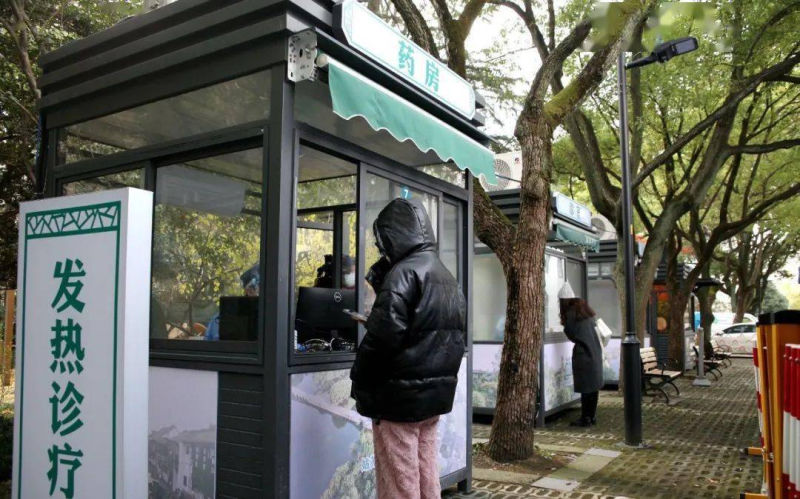
Via ‘copyquan’ republished on Sohu.
Blogger ‘copyquan’ recently explored various ways in which abandoned PCR testing points are being repurposed.
One way in which they are used is as small pharmacies or as medical service points for local residents (居民医疗点). Alleviating the strain on hospitals and pharmacies, this was one of the earliest ways in which the booths were repurposed back in December of 2022 and January of 2023.
Chongqing, Tianjin, and Suzhou were among earlier cities where some testing booths were transformed into convenient medical facilities.
2: Market Stalls
In Suzhou, Jiangsu province, the local government transformed vacant nucleic acid booths into market stalls for the Spring Festival in January 2022, offering them free of charge to businesses to sell local products, snacks, and traditional New Year goods.
The idea was not just meant as a way for small businesses to conveniently sell to local residents, it was also meant as a way to attract more shoppers and promote other businesses in the neighborhood.
3: Community Service Center

Small grid community center in Shizhuang Village, image via Sohu.
Some residential areas have transformed their local nucleic acid testing booths into community service centers, offering all kinds of convenient services to neighborhood residents.
These little station are called wǎnggé yìzhàn (网格驿站) or “grid service stations,” and they can serve as small community centers where residents can get various kinds of care and support.
4: “Refuel” Stations
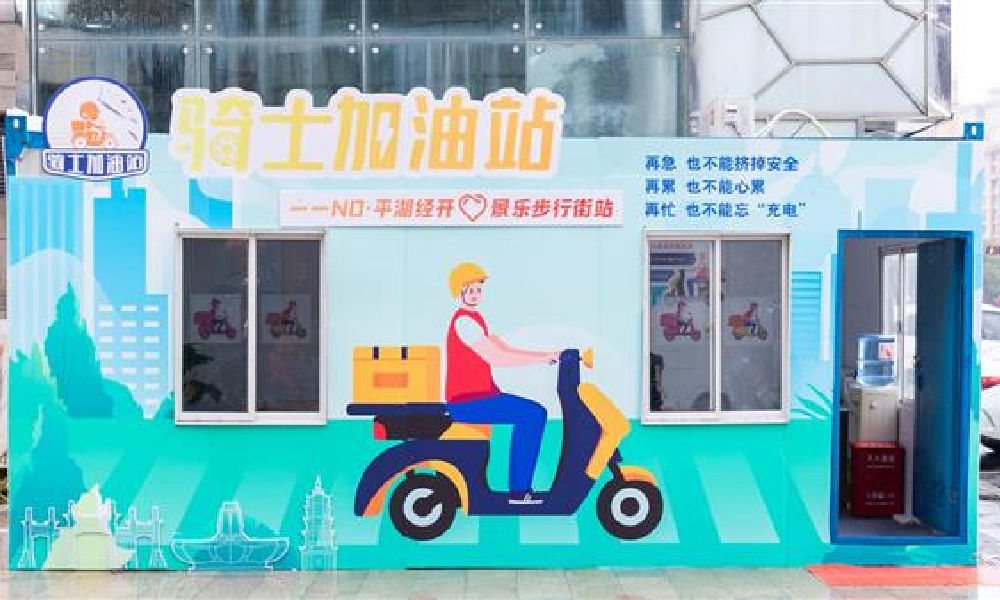
In February of this year, 100 idle nucleic acid sampling booths were transformed into so-called “Rider Refuel Stations” (骑士加油站) in Zhejiang’s Pinghu. Although it initially sounds like a place where delivery riders can fill up their fuel tanks, it is actually meant as a place where they themselves can recharge.
Delivery riders and other outdoor workers can come to the ‘refuel’ station to drink some water or tea, warm their hands, warm up some food and take a quick nap.
5: Free Libraries
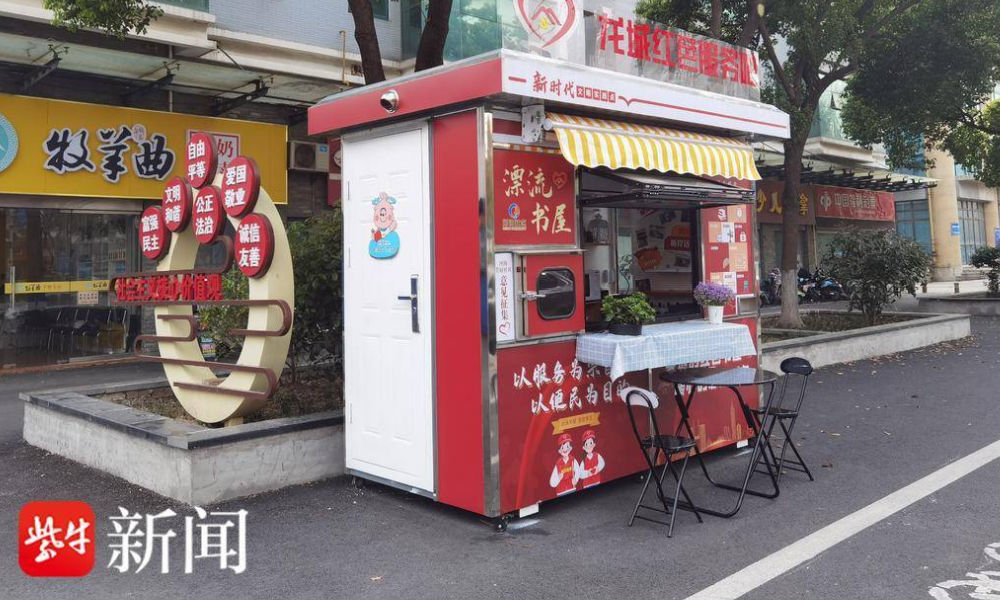
image via sohu.
In various Chinese cities, abandoned nucleic acid booths have been transformed into little free libraries where people can grab some books to read, donate or return other books, and sit down for some reading.
Changzhou is one of the places where you’ll find such “drifting bookstores” (漂流书屋) (see video), but similar initiatives have also been launched in other places, including Suzhou.
6: Study Space
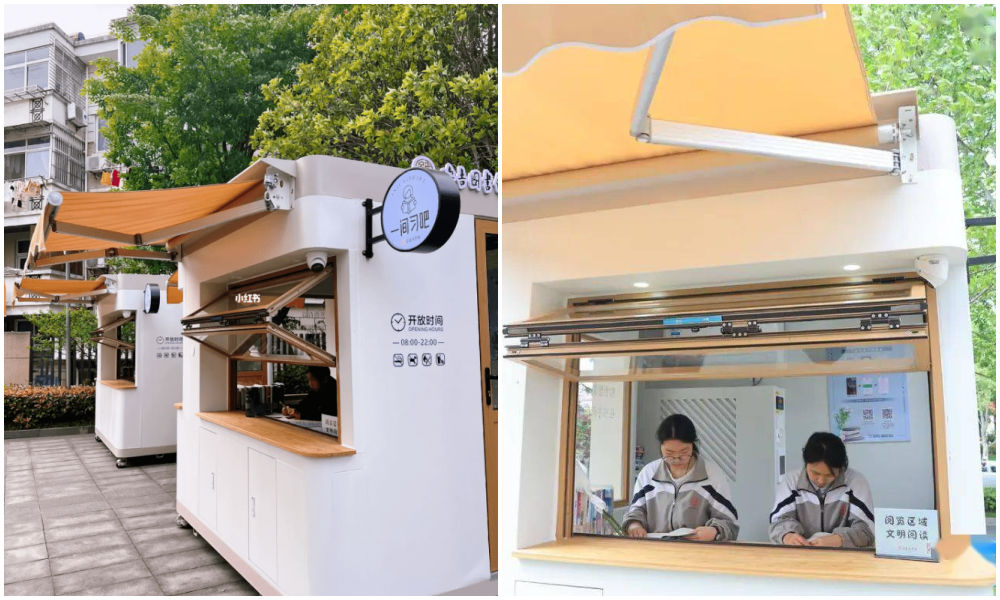
Photos via Copyquan’s article on Sohu.
Another innovative way in which old testing points are being repurposed is by turning them into places where students can sit together to study. The so-called “Let’s Study Space” (一间习吧), fully airconditioned, are opened from 8 in the morning until 22:00 at night.
Students – or any citizens who would like a nice place to study – can make online reservations with their ID cards and scan a QR code to enter the study rooms.
There are currently ten study booths in Anji, and the popular project is an initiative by the Anji County Library in Zhejiang (see video).
7: Beer Kiosk
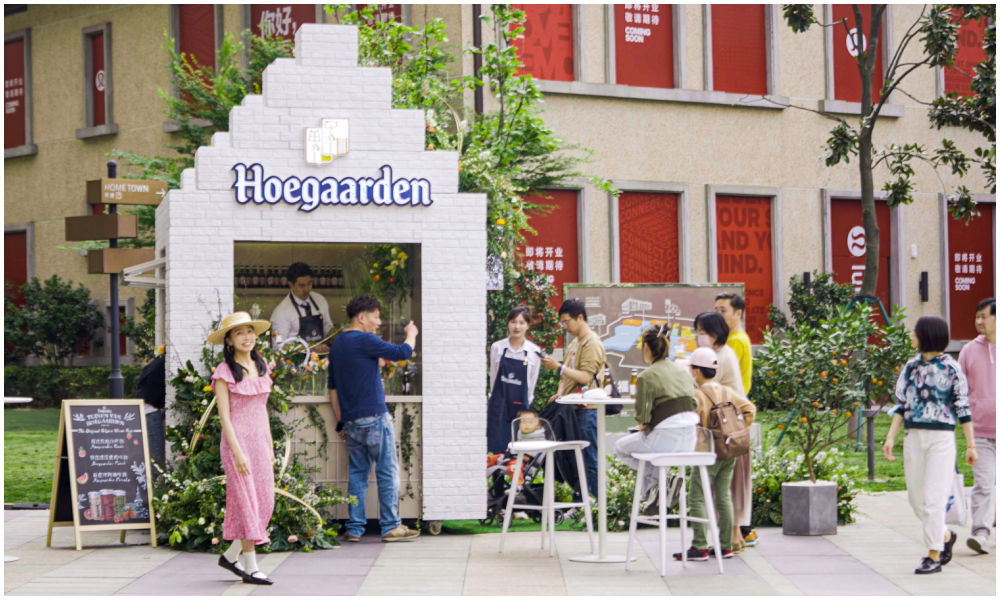
Hoegaarden beer shop, image via Creative Adquan.
Changing an old nucleic acid testing booth into a beer bar is a marketing initiative by the Shanghai McCann ad agency for the Belgium beer brand Hoegaarden.
The idea behind the bar is to celebrate a new spring after the pandemic. The ad agency has revamped a total of six formr nucleic acid booths into small Hoegaarden ‘beer gardens.’
8: Police Box
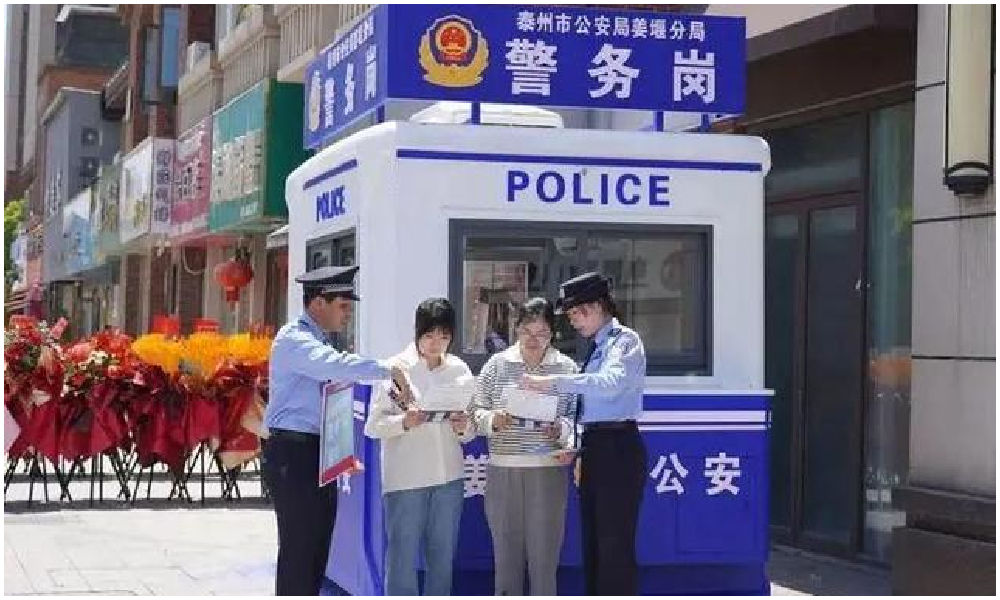
In Taizhou City, Jiangsu Province, authorities have repurposed old testing booths and transformed them into ‘police boxes’ (警务岗亭) to enhance security and improve the visibility of city police among the public.
Currently, a total of eight vacant nucleic acid booths have been renovated into modern police stations, serving as key points for police presence and interaction with the community.
9: Lottery Ticket Booths
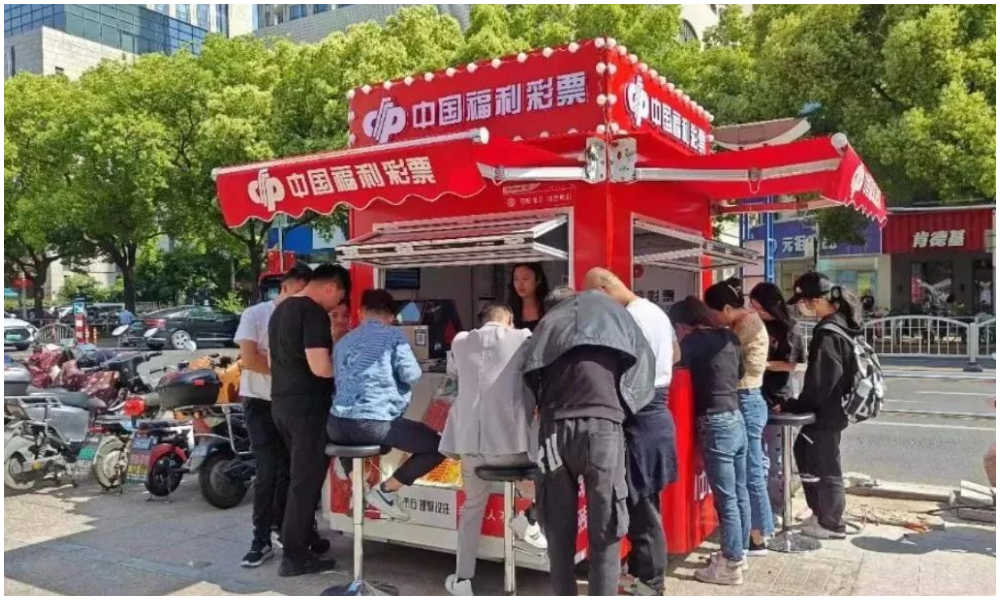
Image via The Paper
Some nucleic acid booths have now been turned into small shops selling lottery tickets for the China Welfare Lottery. One such place turning the kiosks into lottery shops is Songjiang in Shanghai.
Using the booths like this is a win-win situation: they are placed in central locations so it is more convenient for locals to get their lottery tickets, and on the other hand, the sales also help the community, as the profits are used for welfare projects, including care for the elderly.
10: Mini Fire Stations
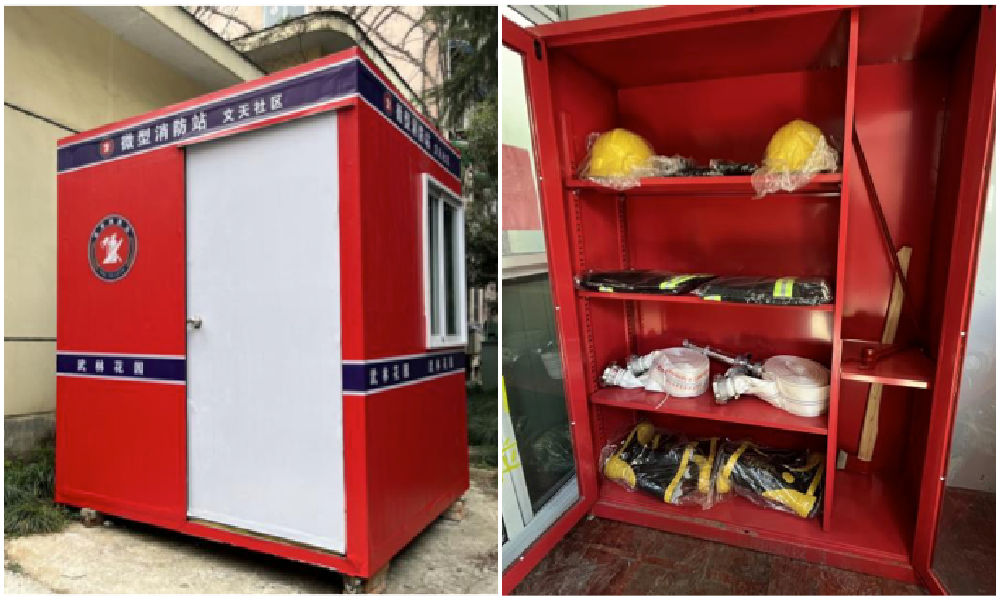
Micro fire stations, images via ZjNews.
Some communities decided that it would be useful to repurpose the testing points and turn them into mini fire kiosks, just allowing enough space for the necessary equipment to quickly respond to fire emergencies.
Want to read more about the end of ‘zero Covid’ in China? Check our other articles here.
By Manya Koetse,
Get the story behind the hashtag. Subscribe to What’s on Weibo here to receive our newsletter and get access to our latest articles:
Spotted a mistake or want to add something? Please let us know in comments below or email us. First-time commenters, please be patient – we will have to manually approve your comment before it appears.
©2023 Whatsonweibo. All rights reserved. Do not reproduce our content without permission – you can contact us at info@whatsonweibo.com.
Subscribe

Weibo Watch: The Future is Here

“Bye Bye Biden”: Biden’s Many Nicknames in Chinese

Enjoying the ‘Sea’ in Beijing’s Ditan Park

A Triumph for “Comrade Trump”: Chinese Social Media Reactions to Trump Rally Shooting

Weibo Watch: Get Up, Stand Up

The Tragic Story of “Fat Cat”: How a Chinese Gamer’s Suicide Went Viral

“Old Bull Eating Young Grass”: 86-Year-Old Chinese Painter Fan Zeng Marries 36-Year-Old Xu Meng

A Brew of Controversy: Lu Xun and LELECHA’s ‘Smoky’ Oolong Tea

Singing Competition or Patriotic Fight? Hunan TV’s ‘Singer 2024’ Stirs Nationalistic Sentiments

Zara Dress Goes Viral in China for Resemblance to Haidilao Apron

Weibo Watch: The Battle for the Bottom Bed

About the “AI Chatbot Based on Xi Jinping” Story

China’s Intensified Social Media Propaganda: “Taiwan Must Return to Motherland”

Weibo Watch: Telling China’s Stories Wrong

Saying Goodbye to “Uncle Wang”: Wang Wenbin Becomes Chinese Ambassador to Cambodia
Get in touch
Would you like to become a contributor, or do you have any tips or suggestions? Get in touch here!
Popular Reads
-

 China Insight3 months ago
China Insight3 months agoThe Tragic Story of “Fat Cat”: How a Chinese Gamer’s Suicide Went Viral
-

 China Music4 months ago
China Music4 months agoThe Chinese Viral TikTok Song Explained (No, It’s Not About Samsung)
-

 China Digital10 months ago
China Digital10 months agoToo Sexy for Weibo? Online Discussions on the Concept of ‘Cābiān’
-

 China Arts & Entertainment12 months ago
China Arts & Entertainment12 months agoBehind 8 Billion Streams: Who is Dao Lang Cursing in the Chinese Hit Song ‘Luocha Kingdom’?





